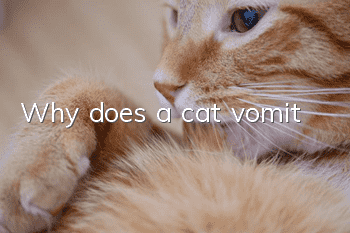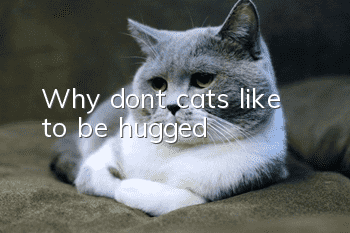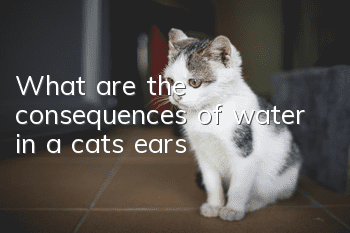Why does a cat vomit?

Cat vomiting may be caused by overeating, gastritis, parasitic infection, intestinal obstruction, etc. If it is caused by overeating, which will increase the burden on the gastrointestinal tract and affect the normal digestion of food, vomiting is a normal phenomenon and generally there is no need to worry too much. If it is abnormal vomiting, accompanied by adverse reactions such as acid reflux and stomach pain, it is recommended that the owner take the cat to a regular hospital for examination in time, and then carry out treatment according to the examination results.
1. Eating too much
If a cat eats too much, it will affect food digestion and metabolism, leading to food accumulation in the gastrointestinal tract, resulting in vomiting. It is necessary to reduce the amount of food eaten and eat less and more. For meals, you can also eat easily digestible foods, such as egg custard, vegetables, etc., which can reduce damage to the stomach.
2. Gastritis
Usually caused by unhealthy eating habits and Helicobacter pylori infection, gastric mucosal inflammation manifests as mid-upper abdominal pain, lack of appetite, belching, acid reflux, etc. Timely treatment can lead to food indigestion and vomiting. You need to follow the doctor's advice and take drugs to promote digestion to improve it.
3. Parasitic infection
Usually caused by poor eating habits, it can cause parasites to live in the intestines, causing symptoms such as nausea and stomach pain, and can cause parasites in the stool. Parasites need to be improved by taking anthelmintic drugs under the guidance of a doctor, which can expel parasites in the intestines, increase appetite, and relieve vomiting.
4. Intestinal obstruction
If the cat itself suffers from intestinal obstruction, it will cause food to accumulate in the intestines, causing vomiting, loss of appetite, severe abdominal pain and other symptoms. It is recommended that the owner promptly seek treatment Take the cat to the hospital for a detailed examination, then determine the cause and follow the doctor's advice to treat it surgically.
- How much water is enough for cats to drink every day if they eat dry food or canned food?
- What should I do if my cat has catitis? Treat it locally and all over the body.
- What are the dangers of keeping free-range cats outside?
- How to deal with a cat in heat
- How long can cat grass last?
- How often should I fight PetWeiRuiBei?
- Will fold-eared cats die from the disease?
- Can kittens eat ice?
- Can cats eat soy milk-flavored biscuits?
- Can cats eat raw chicken breast?



